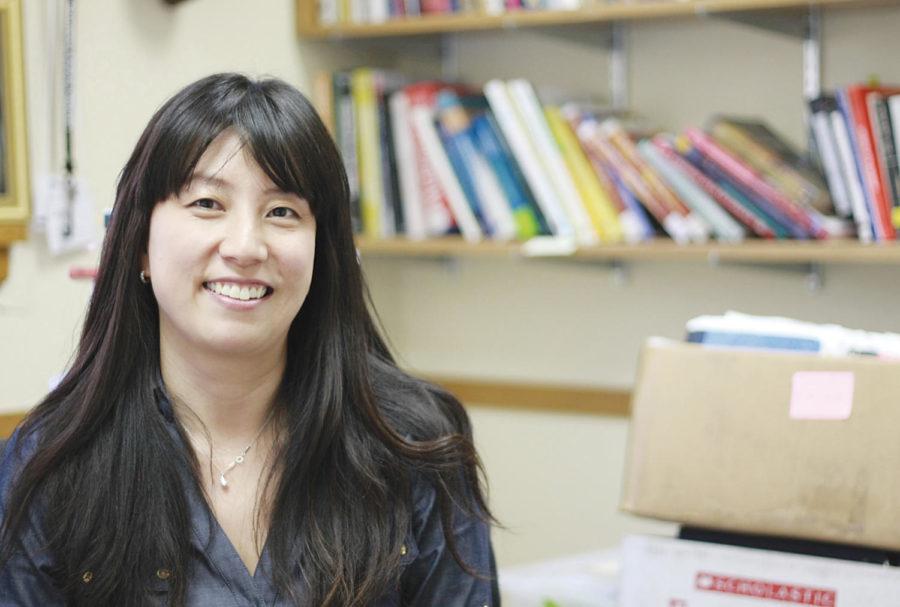Assistant professor researches effects of mentoring
Photo: Kendra Plathe/Iowa State Daily
Eun Jin Bang, assistant professor of curriculum and instruction, discussed her experience as a researcher for teacher mentoring programs on Monday, April 2, in Lagomarcino Hall. Bang was recognized at the National Association for Research in Science Teaching along with five other researchers.
April 3, 2012
Eun Jin Bang, assistant professor within the curriculum and instruction department, has focused her research on how to mentor early teachers so they can be more successful in the classroom.
Bang decided to focus her research on helping new teachers because she personally felt the need for a mentor. “I was a school teacher in South Korea for five years,” Bang said. “I didn’t know what to do.”
While teaching in South Korea, Bang found herself at an isolated school, wondering if she was being a good teacher. She wished she had a mentor and now tries to find the best way to help teachers through their first years.
“They need somebody to hold their hand,” Bang said.
She is currently facilitating a Hybrid Mentoring for Beginning Elementary Sciences Teachers program associated with the Center for Excellence in Science, Mathematics, and Engineering Education. Beginning elementary science teachers in Council Bluffs, Iowa, participate in the program.
Bang said the program matches new teachers with a mentor. They communicate online about developing lesson plans. Then the new teachers implement the plans while the mentors watch. Then they discuss more to determine the best lesson.
“Technology is heavily embedded in what we do and what we think,” Bang said regarding the program’s use of the Internet.
The teachers in the program are able to grow in their teaching ability and get new teaching materials such as an iPad.
“[The teachers in the program] were like kids at Christmas,” Bang said.
Bang, as part of a research team with Julie Luft (University of Georgia), Jonah Firestone (Arizona State University), Sissy Wong (University of Houston), Ira Ortega (University of Alaska) and Krista Adams (University of Nebraska), received the Most Influential Paper of the Year award last month by the National Association for Research in Science Teaching.
According to the NARST website, “This honor indicates the article has received the highest ratings from their colleagues in the Selection Committee from among all articles published in Volume 48 (2011) of JRST.”
Their paper, “Beginning Secondary Science Teacher Induction: A Two-Year Mixed Methods Study,” talked about a nationwide study that Bang and other team members conducted to determine what type of mentoring support programs make new teachers more effective. According to Bang, they found that all types of mentoring leads teachers toward the same point.
“Without her work in this area, there would not have been the e-mentoring component in this project,” said Luft. “She was always attentive to details in understanding the findings that were emerging.”
“It’s a start,” Bang said about receiving the award. “The important thing is what comes after.”







